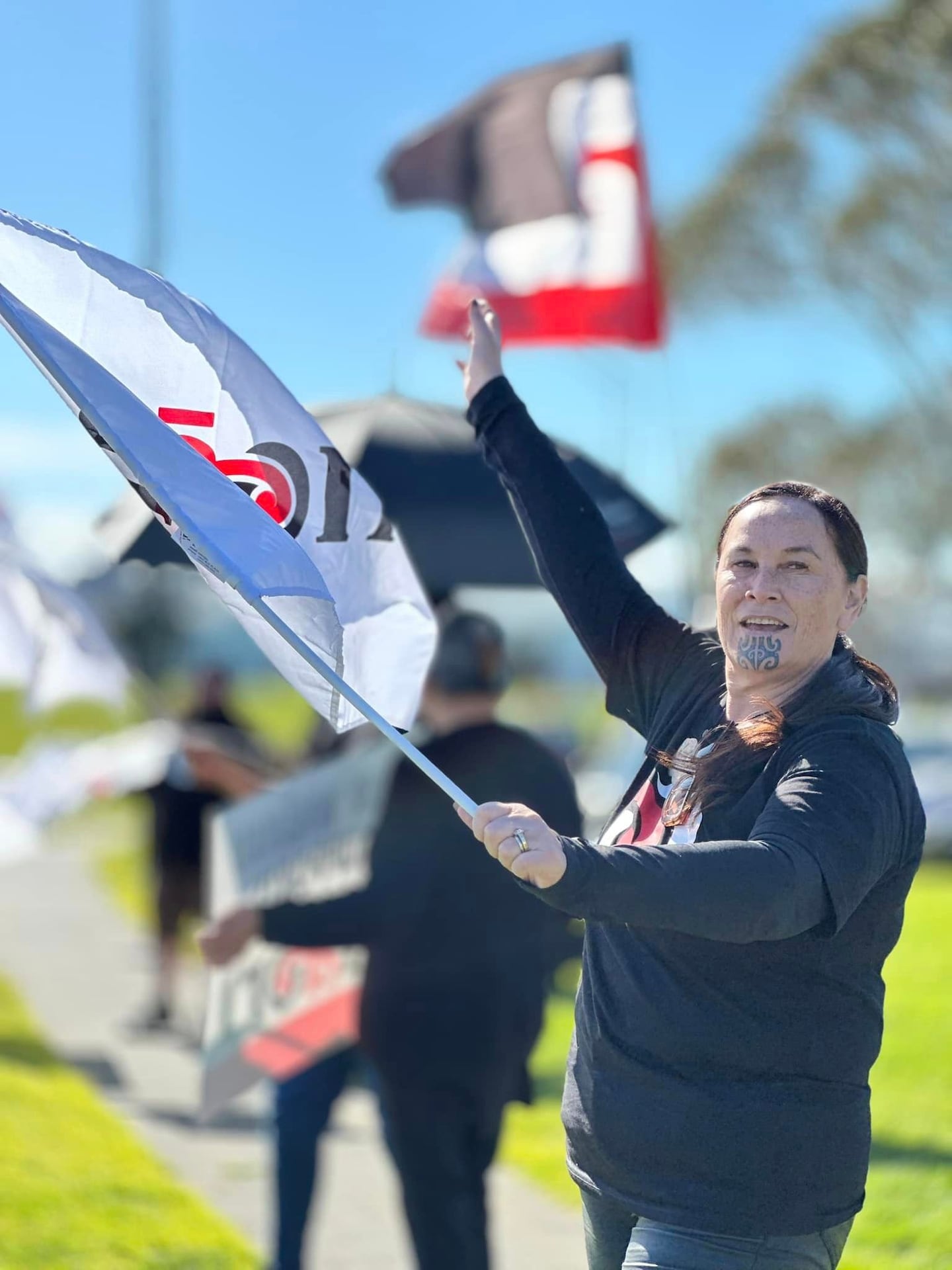Te Pāti Māori co-leader Debbie Ngarewa-Packer describes Election Day as a “disgraceful event of affairs” for Māori voters.
In the Te Tai Hauāuru Māori electorate alone there were many issues raised from various Māori communities throughout the electorate, of having a negative experience voting, she says
The Electoral Commission disagrees and says it runs a review after every election.
Ngarewa-Packer says, “When we see 12,000 of our whānau aren’t participating, all the more reason to make sure that we have pre-empted everything we need to do to make it easier to participate. That’s not how Election Day on October 14th looked for Māori. It was a disgraceful event of affairs and there needs to be an immediate review and assurance that we don’t have a repeat of that ever again in Aotearoa.”
“So, imagine how Aotearoa would look if we had those 12,000 not participating again in Te Tai Hauauru as we saw, being able to vote. It’s not to the majority’s advantage to remove the barriers for Māori to be able to participate in democracy.”
Ngarewa-Packer believes there is a mismatch for the Māori electorate voters on election day.
“If you look at the Electoral Commission results for Te Tai Hauāuru, there are so many voting booths, existing ones, that had no one attend them. So, there was clearly a mismatch of the focus from the day, I mean what a mess, on Election Day when we saw issues come on, that had queues of our whānau waiting and eventually leaving.”
Ngarewa-Packer is adamant that Māori communities taking ownership of their own voting booths are the key to gaining more positive results for Māori voters. An independent Māori electoral commission is also required, she says.
“We had whānau that we knew of across the motu who were wanting to find out how they could host a voting booth. Places like our kura, our kōhanga, our marae, where our whānau will go knowing that they will be embraced and met without prejudice to be able to participate, that they’ll be guided and not feel w’akamā. Because you don’t want to go into a place like that and feel w’akamā because it’s the first time you’ve voted, you don’t know what the process is. And they were told no. In fact, some of them never even got a response. I’ve looked at the results in Te Tai Hauāuru and we have more than a dozen voting booths that have absolutely had no one come in.”

Te Pāti Māori is calling for an urgent review of the voting system based on what went wrong, what needs to be improved, and what the exact changes will be going forward. This issue for Māori needs to be rectified immediately and excuses of online facilities failing and technology going wrong, are not good enough, she says.
“So, there’s been no review. There’s just been a continuation of what they traditionally think should be done. And that’s not acceptable, especially when we have a mismatch here, when so many Māori communities did want to help to bridge the gap and tautoko our whānau through the process. There needs to be an urgent review. We have seen multiple requests and surveys being completed for those to share. And our president is also collecting information on what it is that went wrong.”
But the Electoral Commission says it holds a review after every election to look at what went well, and what itcan do to improve its services to voters, and provides a report to Parliament.
“As part of that review, we will look at voting services to Māori and any complaints that have been raised, including those from Te Pāti Māori.
“We take these matters very seriously and it’s important to us that all voters have a good voting experience. If anyone has a complaint or enquiry we ask them to please contact us directly at Contact us | Vote NZ so that we can investigate fully.
“The Electoral Commission has worked hard to improve services to Māori voters and this election had many voting places at kura, marae and wananga across the country, including 15 bilingual voting places. We will continue to work with Māori communities and organisations to improve services in the future.



